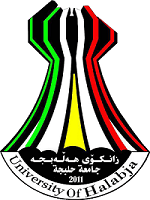Anti-Globalization Social Movements
DOI:
https://doi.org/10.32410/huj-10472Keywords:
Movement, Social, GlobalizationAbstract
The concept of modern globalization has been known around the world in the last few decades. It is mentioned that this new idea is recognized after the International Economic Conference (IEC) in 1971.It is also believed that the IEC is the mastermind of the new globalization. On the other hand, the opposition for conducting the World Trade Conference (WTC) in Seattle 1999, and then the establishment of (World Social Forum) in 2001 can be measured as a clear beginning for anti-globalization movements. Next, according to the aim of this study several outcomes can be acquired.
Firstly, understanding the nature and goals of anti-globalization movements. Their goals can be identified in the limitation of economic and cultural monopolization which are conducted by industrial countries and global companies. Secondly, the comprehension of the growing stages of both globalization and anti-globalization movements. The globalization administers their benefits through the politics that will be with me willingly or unwillingly. It uses the law and politics of the international and commercial banks to their advantages. Thirdly, acknowledgment the role and future of the any countries under the control of the globalization system. In this system, the country role will very weak and presents as an organizer for global companies, however the anti-globalization movements attempt to recover the role of the country and their nations. Finally, clarification the goals of anti-globalization movements and the processes to obtain or reach their destinations. The nature and mission of the social movements can be concluded in several activities such as meetings, using of social media, utilize of internal and external mass media to represent their opposition. The employment of these activities are the main attempt of the anti-globalization to acquire support for their country and nations.
References
یهكهم: سهرچاوه عهرهبیهكان:-
/ جیدنز ت الصیاغ، أنتونی جیدنز، كارین بیردسال، علم الاجتماع، ترجمة: فایز، مركز دراسات الوحده العربیة، بیروت، 2005.
/ تلی ت وهبه، تشارلز، الحركات الاجتماعیة (1768- 2004)، ترجمه: ربیع، المجلس الأعلی للثقافة المشروع القومي للترجمة، القاهرة، 2005.
/ مارشال ت الجوهری، جوردون، سكوت، جون، موسوعة علم الاجتماع - مجلد 2، ترجمة: محمد، المجلس الأعلی للثقافة المشروع القومی للترجمة، القاهرة، 2011.
/ ماجده، حجار، العولمة والعنف، أطروحة دكتوراه، جامعة منتوری – الجزائر، 2010.
/ عبدربة، أمل عادل ، علی عبدالرزاق جلبی، الحركات الاجتماعیة الجدیدة وحقوق الإنسان، بحث مقدم فی المؤتمر التأسیسی ل (المجلس العربی للعلوم الاجتماعیة)، بیروت، 2013.
/ سمیث و بو دبوس، إدوارد كولد، جیری ماندیر وآخرون، محاكمة العولمة، ترجمةو تقدیم: رجب، المركز العالمي لدراسات وأبحاث الكتاب الاخضر، لیبیا، طرابلس، بدون سنة الطبع.
/ رضا عبدالسلام، إنهیار العولمة، كتب عربیه، الریاض، بدون سنة الطبع.
/ محمد، حشماوی، الاتجاهات الجدیدة للتجارة الدولیة، أطروحة دكتوراه، جامعة الجزائر، الجزائر، 2006.
/ العبدالله، می، نظریات الاتصال، دار النهضة العربیة، بیروت، 2010.
دووهم / سهرچاوهئینگلیزییهكان:
-Jagdish Bhagwati, Anti-globalization: why? Department of Economics, Columbia University, New York, NY 10027, USA Available online 25 May 2004.
-Heather Gautney, Protest and Organization in the Alternative Globalization Era, USA, New York,2010.
-Amandha Rohr Lopes, The Impact of Social Media on Social Movements, Creighton University, USA, NE, Omaha, 2014.
سێیهم: ئینتهرنێت:
- غانم، ابراهیم البیومی، مقالة بعنوان (الحركات الاجتماعیة.. تحولات البنیة وانفتاح المجال)، 2004. http://www.islamonline.net/arabic/mafaheem/2004/05/article01.shtml
-موقع BBC عربی، 27/12/2017 http://www.bbc.com/arabic/world-40519902
Downloads
Published
Issue
Section
License
Copyright (c) 2023 Samih Mustafa Hassan, Sherwan Hadi Mohammed

This work is licensed under a Creative Commons Attribution-NonCommercial-NoDerivatives 4.0 International License.
Authors who publish with this journal agree to the following terms:
- Authors retain copyright and grant the journal right of first publication with the work simultaneously licensed under a Creative Commons Attribution License [CC BY-NC-ND 4.0] that allows others to share the work with an acknowledgment of the work's authorship and initial publication in this journal.
- Authors are able to enter into separate, additional contractual arrangements for the non-exclusive distribution of the journal's published version of the work (e.g., post it to an institutional repository or publish it in a book), with an acknowledgment of its initial publication in this journal.
- Authors are permitted and encouraged to post their work online (e.g., in institutional repositories or on their website) prior to and during the submission process, as it can lead to productive exchanges, as well as earlier and greater citation of published work (See The Effect of Open Access).






